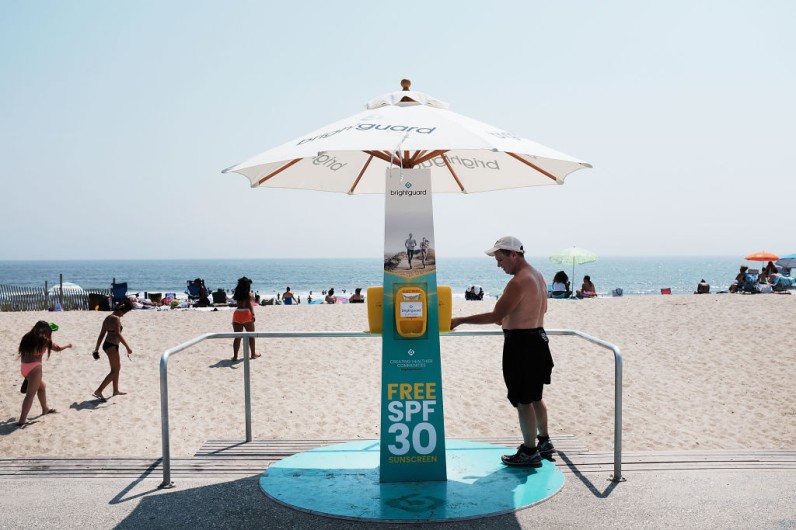
Cancer Research UK's findings sparked a plea for people to apply high-factor sunscreen, spend time in the shade, and cover up rather than risking sunburn. The study also emphasizes the risks of using a sunbed to tan before going on vacation.
Experts Urge People to Apply Sunscreen as Skin Cancer Cases Set to Skyrocket
According to the study, over 17,000 melanoma occurrences in the UK might be averted each year, with nearly nine out of ten caused by excessive UV radiation.
Cancer rates, which are often caused by excessive sun exposure, have grown by nearly a third in the last decade and with the summer holidays coming, research suggests that 20,800 cases might be predicted this year.
According to Daily Mail, sun-related skin cancer rates have risen the most among the elderly, with a 57% increase in those over the age of 80 between 2010 and 2019.
Experts believe that many individuals are suffering from years of sunbathing since inexpensive package trips were popular in the 1960s, when the effects were not well acknowledged.
Younger generations are fully aware of the linked between UV exposure and cancer, although there has been a 7% rise in incidence among those aged 25 to 49.
Although incidences have increased, so have survival rates during the last 50 years. Today, over 90% of persons diagnosed with cancer in England will live for ten years or more.
With warmer weather predicted, doctors recommend spending time in the shade between 11 a.m. and 3 p.m., covering up, wearing a wide-brimmed hat and sunglasses, and applying at least factor 30 sunscreen.
Dr. Claire Knight of Cancer Research UK stated that being sunburned once every two years can treble the chance of acquiring skin cancer. Whether you are abroad or at home, it is critical to safeguard oneself.
Last month, it was disclosed that the first customized mRNA vaccine for melanoma was being evaluated on British patients.
Misinformation About Sunscreen Spreads
Meanwhile, there is a concerning trend among certain content creators who are spreading misinformation about the use of sunscreen.
Despite extensive scientific research proving the link between excessive sun exposure and skin cancer, these individuals are falsely claiming that sunscreen causes cancer and hinders the sun's benefits.
According to the American Academy of Dermatology, skin cancer is the most common type of cancer, affecting 1 in 5 Americans during their lifetime.
The AAD states that excessive exposure to UV radiation, whether from sunlight or indoor tanning, can increase the risk of all types of skin cancer.
They also mention that having a personal history of the disease can contribute to this risk. Additionally, the AAD highlights that the majority of melanoma cases can be attributed to UV exposure.
However, influencers such as Riley Check, known as @holisticgrenade on X, often share inaccurate information, such as the claim that wearing sunscreen always leads to skin cancer. The Tweet that garnered almost 60,000 views.







Join the Conversation